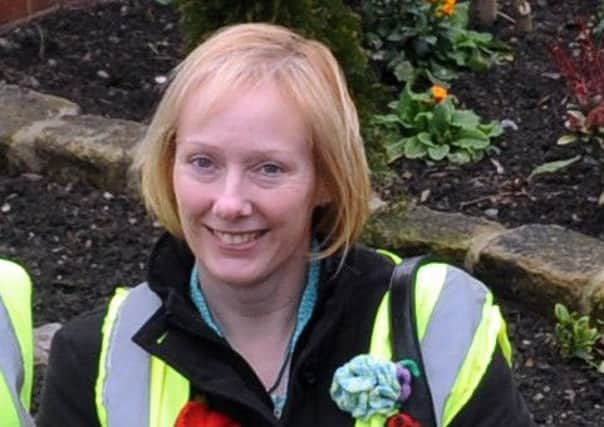Tragic Leeds wife was stabbed to death after telling husband she wanted divorce


Civil servant Susan Ashworth was repeatedly stabbed by husband Martin, who suffered fatal burns when he torched their home in Farfield Court, Garforth, following the killing in April 2014.
Following an inquest at Wakefield Coroner’s Court, Senior Coroner David Hinchliff recorded a conclusion that Mrs Ashworth was unlawfully killed by her husband.
Advertisement
Hide AdAdvertisement
Hide AdHe recorded an open verdict on the death of Martin Ashworth. Mr Hinchliff said it was not possible to know if he had intended to set himself on fire or had become caught up in it.
A forensic post mortem revealed Mrs Ashworth died from multiple stab wounds to the chest and two to the liver.
Mr Ashworth died after suffering 80 per cent burns and inhalation of fumes.
The inquest had heard Mr Ashworth once smashed a bannister at the couple’s home and threatened his wife with a piece of the broken wood.
Advertisement
Hide AdAdvertisement
Hide AdIn November 2013, Mrs Ashworth, 47, told her mother she planned to end the marriage when her youngest son had finished his GCSEs in summer 2014.
Mrs Ashworth made new friends, her confidence grew and she was said to be “blooming.”
On March 22 2014, Mr Ashworth, 48, attempted suicide using car exhaust fumes. His wife believed it was a bid to exercise control over the family.
Mr Ashworth was admitted to psychiatric unit The Becklin Centre at St James’s Hospital on March 26 2014 under section 2 of the Mental Health Act.
Advertisement
Hide AdAdvertisement
Hide AdMrs Ashworth told him she wanted a divorce on March 27, while he was at the centre.
Dr Guy Brookes, senior clinical director at the Leeds and York Partnership NHS Foundation Trust, said Mr Ashworth did not have a diagnosable mental illness.
Mrs Ashworth reluctantly agreed to allow her husband to return temporarily to stay separate bedroom at the family home when he was discharged on April 16.
Mrs Ashworth was found in the kitchen with fatal stab wounds to her chest and Mr Ashworth was found in the garden with fatal burn injuries after a blaze at the couple’s home on April 29 2014. Summing up the evidence, senior coroner David Hinchliff said: “She had got herself involved in local project Garforth in Bloom. This caused her confidence and self esteem to grow. In November 2013 she confided in her mother that she had found the strength and will to leave Martin. In 2014 she went on more social outings. By then she could see what she thought was the light at the end of the tunnel. She, according to her mother, was physically blooming.”
Advertisement
Hide AdAdvertisement
Hide AdMr Hinchliff added: “Martin had never assaulted Susan, but he had been responsible for over 25 years of domestic abuse, which he had admitted to.”
MA Domestic Homicide Review carried out by Safer Leeds concluded mother-of-two Mrs Ashworth’s death “might have been prevented” had agencies recognised the seriousness of her situation.
It found that following Martin Ashworth’s suicide attempt on March 22 2014 Mrs Ashworth had told a number of agencies he had been controlling and abusive throughout their marriage.
She had told Leeds and York Partnership NHS Foundation Trust, West Yorkshire Police, Leeds Adult Social Care and Leeds Women’s Aid.
Advertisement
Hide AdAdvertisement
Hide AdThe Domestic Homicide Review review stated Mrs Ashworth had been in contact with police on three separate occasions in the three weeks before her death. She had called police two days after Mr Ashworth had been discharged from the Becklin Centre after he followed her on a walk after being asked not to.
Summing up evidence from Domestic Homicide Review chair Hilary McCollum, senior coroner David Hinchliff said: “She (Hilary McCollum) said it is at least possible that the overall outcome might have been different and the death might have been prevented. She concedes it was a speculative view.” He added: “The seriousness of Susan’s situation was not recognised despite there being a number of high risk indicators.”
Neil Evans, Chair of Safer Leeds Executive (Community Safety Partnership), said after the inquest: “The Domestic Homicide Review report sets out recommendations and we will be working with all the agencies involved to strengthen the procedures, protocols and referral processes which are in place in those areas identified. It is vitally important we learn the lessons from this review to ensure there are improved service responses to domestic violence cases in the future.”